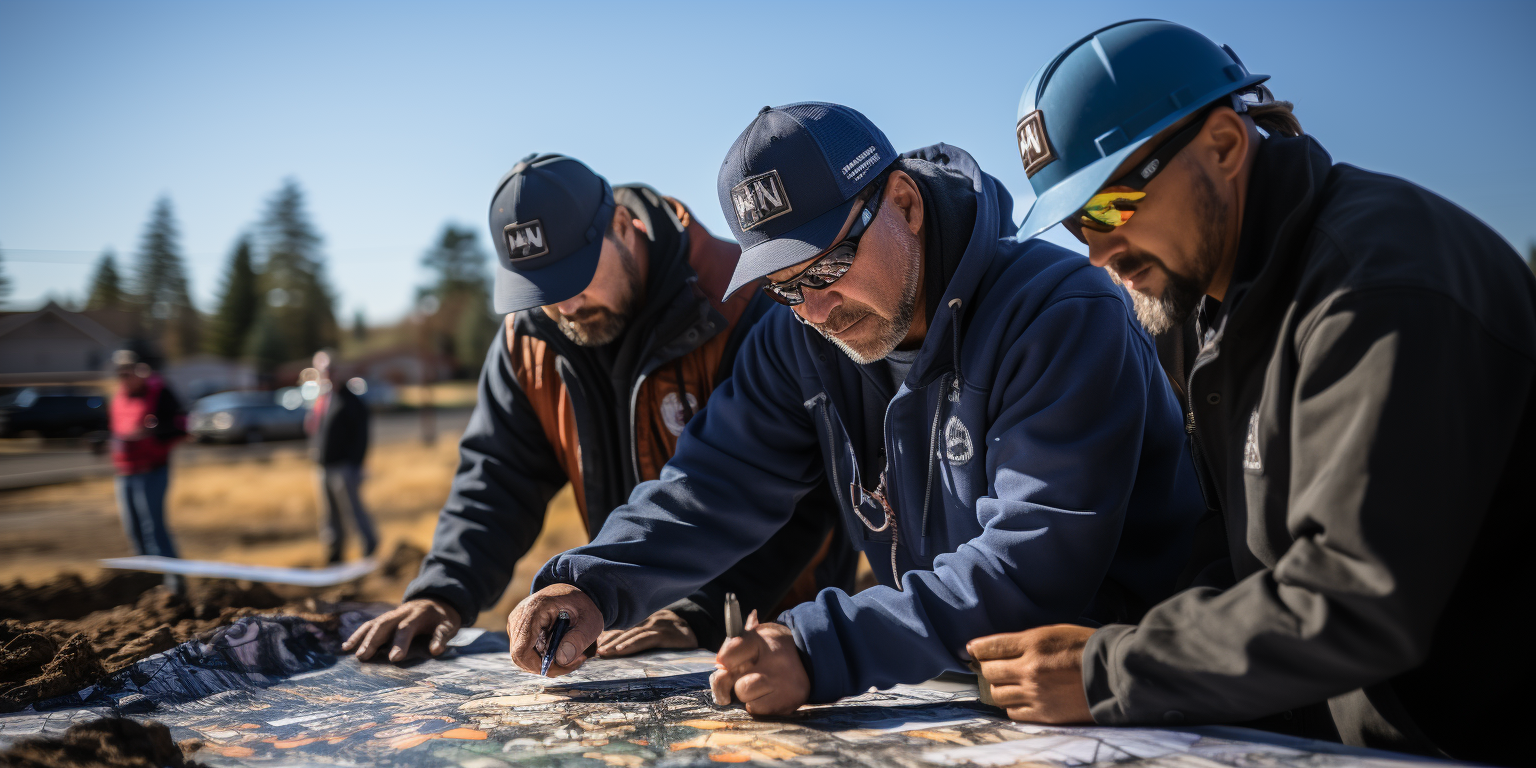Construction field service management is a system that helps construction companies effectively manage their field operations. It involves using technology and software to streamline processes, improve communication, and increase efficiency in the field. This allows construction companies to better monitor their projects, track resources, and deliver quality work on time.
Field service management encompasses various aspects of a construction project, including scheduling, dispatching, tracking, and reporting. By automating these processes, construction companies can save time and resources, reduce errors, and improve project management.
Given the growing demand for infrastructure development and the increasing complexity of construction projects, field service management has become essential in the industry. It enables companies to stay competitive by completing projects faster, with better quality, and at a lower cost.
Additionally, construction field service management enables real-time collaboration and communication between project managers, supervisors, and field workers. This facilitates quick decision-making, problem-solving, and resource allocation to ensure smooth operations on the job site.
Content:
- Revolutionizing the Construction Industry: Field Service Management’s Cardinal Role
- Redesigning Construction Through Field Service Management: Transformation In Progress
- Navigating Through Construction Pitfalls with Field Service Management: An Overview
- Unveiling the Value of Field Service Management in the Dynamically Changing Construction Industry
- Harnessing the Power of Field Service Management for Enhanced Construction Efficiency
The construction industry has witnessed significant advancements in technology and software in recent years. One of the most impactful developments is the use of field service management systems. These systems have revolutionized how construction companies operate their projects, making them more efficient, productive, and ultimately successful.
In this document, we will delve deeper into the concept of construction field service management, its importance in the industry, and the benefits it brings to construction companies. We will also explore the various components of field service management and how they collaborate to optimize field operations.
Revolutionizing the Construction Industry: Field Service Management’s Cardinal Role
The construction industry has witnessed a radical transformation with the emergence of field service management (FSM) systems. These robust technological solutions have revolutionized how construction projects are executed, monitored, and managed. FSM acts as the crucial link between the field and the office, streamlining communication, boosting productivity, and ensuring project success.
By connecting all stakeholders seamlessly, FSM enables real-time collaboration and data sharing. This allows construction companies to address challenges swiftly and make informed decisions promptly, ensuring project timelines are met effectively. FSM also eliminates manual paperwork, digitizing processes such as work orders, reporting, and documentation. As a result, project teams have access to accurate and up-to-date information at their fingertips, minimizing errors and optimizing efficiency.
Moreover, FSM empowers construction companies with advanced analytics and reporting capabilities. By tracking and analyzing field data, businesses gain valuable insights into performance, resource allocation, and project costs. Armed with this knowledge, companies can proactively identify bottlenecks, optimize workflows, and make data-driven decisions to drive profitability.
In summary, field service management plays a cardinal role in revolutionizing the construction industry. It enables seamless communication, reduces administrative burden, enhances efficiency, and empowers companies with actionable insights. Embracing FSM technology is no longer an option but a necessity for construction businesses looking to thrive in the modern era.
Redesigning Construction Through Field Service Management: Transformation In Progress
The construction industry is currently undergoing a transformative journey, thanks to the implementation of field service management (FSM) systems. As companies realize the potential of FSM, they are actively redesigning their processes and workflows to adapt to this new era of construction management.
FSM has shifted the focus from traditional paper-based methods to digital solutions. The use of mobile devices and cloud-based platforms enables seamless communication between construction teams, regardless of their location. This real-time collaboration streamlines operations and promotes efficiency, making project execution smoother and more synchronized.
Furthermore, FSM enables the automation of various tasks that were previously time-consuming and susceptible to errors. Through automated scheduling, dispatching, and tracking, construction companies can optimize resource allocation and utilize their workforce more effectively. This not only saves time and reduces costs but also enhances customer satisfaction by delivering projects on time and within budget.
With FSM, construction businesses can also leverage the power of data analytics to improve decision-making and performance monitoring. Real-time data insights enable proactive problem-solving, helping companies foresee and mitigate potential risks and delays. By analyzing historical data, businesses can identify patterns, forecast trends, and make strategic decisions that drive long-term success.
In conclusion, the construction industry is undergoing a significant transformation with the adoption of field service management. As companies redesign their processes and harness the full potential of FSM, they are experiencing increased productivity, higher efficiency, and improved project outcomes. This ongoing revolution is reshaping the construction landscape and paving the way for a more streamlined, technology-driven future.
Unveiling the Value of Field Service Management in the Dynamically Changing Construction Industry
In today’s dynamically changing construction industry, field service management (FSM) has emerged as a valuable asset for companies seeking to stay ahead of the curve. FSM provides construction businesses with the tools and technologies to adapt to evolving market demands, increase operational efficiency, and deliver projects with excellence.
One of the key values of FSM lies in its ability to optimize resource allocation. Through advanced scheduling and dispatching capabilities, FSM systems ensure that the right personnel and equipment are assigned to the right tasks at the right time. This not only minimizes downtime but also maximizes productivity, enabling construction companies to complete projects efficiently and within budget.
Additionally, FSM enhances collaboration and coordination between different teams and departments within the construction organization. By providing real-time updates and enabling seamless communication, FSM bridges the gap between the field and the office. This results in improved decision-making, faster problem-solving, and a more agile response to changing project requirements.
Furthermore, FSM’s data analysis and reporting functionalities empower construction companies to make informed strategic decisions. By leveraging real-time insights and historical data, businesses can identify trends, forecast future needs, and optimize their operations. This data-driven approach allows for better project planning and enables businesses to continuously improve their processes for long-term success.
In conclusion, field service management holds immense value in the dynamically changing construction industry. Its ability to optimize resource allocation, enhance collaboration, and provide data-driven insights is crucial in achieving operational excellence and delivering projects successfully. With FSM, construction businesses can navigate the challenges of the industry with confidence and adapt to the evolving landscape.
Harnessing the Power of Field Service Management for Enhanced Construction Efficiency
In the construction industry, where every second counts, field service management (FSM) has emerged as a game-changer in driving enhanced efficiency. By harnessing the power of FSM, construction companies can streamline their processes, optimize resource utilization, and ultimately deliver projects more efficiently.
One of the primary ways FSM improves efficiency is through better task management. By digitizing workflows and automating processes, FSM systems enable construction teams to prioritize tasks, assign resources, and track progress in real-time. This ensures that all activities are executed promptly, reducing idle time, and maximizing productivity.
Additionally, FSM empowers construction companies with centralized platforms for effective communication and collaboration. By connecting team members and providing seamless access to project information, FSM eliminates communication gaps and reduces the risk of miscommunication. This fosters better coordination, allowing project teams to work in harmony and complete tasks efficiently.
Furthermore, FSM’s scheduling and dispatching features play a crucial role in optimizing resource utilization. Through intelligent scheduling algorithms, FSM systems ensure that resources such as personnel, equipment, and materials are allocated efficiently. This minimizes downtime and prevents resource bottlenecks, allowing projects to progress smoothly and on schedule.
Moreover, FSM enables construction businesses to leverage data analytics to optimize their operations. By collecting and analyzing data related to project performance, resource utilization, and cost trends, construction companies gain valuable insights to make data-driven decisions. These insights help identify areas of improvement, allowing construction businesses to continuously refine their strategies and enhance overall efficiency.
In conclusion, field service management empowers construction companies to unlock enhanced efficiency in their operations. Through better task management, streamlined communication, optimized resource allocation, and data-driven decision-making, FSM drives productivity and project success. Embracing FSM is key to harnessing the power of technology and maximizing efficiency in the construction industry.



